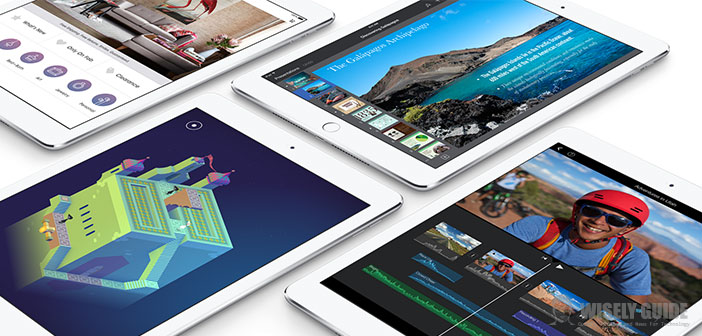The architecture of Apple Cyclone is based on the performance of the individual cores. But if they are crammed three out of a single CPU, the results could be very high. And that’s what happens with Apple A8X, the new processor of iPad Air 2.
The first benchmark of Air iPad 2 have revealed some of the technical specifications of the tablet, until recently unknown in spite of the official presentation of almost a week ago. Apple is never too technical in their ads, and on that occasion, it had not revealed the features of Apple A8X, the SoC owner who, in the words of the company, would allow considerable performance advantages over the previous generation.
It turned out more during the evening of Tuesday, which appeared online in the first benchmark. Apple A8X is a triple-core processor supported by 2GB of RAM, exclusive technical specifications on an iOS device. The Cyclone architecture 64-bit processor family Apple Ax is often recognized for having excellent performance on single core, and is now being integrated in a package that contains three.
The benefits are a lot of interesting on the single core you already have a distinct advantage in its test on Geekbench, which naturally becomes even more significant in the multi-core test, in which Air iPad 2 gets a score of 68% higher than the model replaced in the line-up of tablet of Cupertino. Apple A8X is significantly faster than even the SoC A8 built on the new iPhone 6 and iPhone 6 Plus.

In comparison to the Android market, the proposal that is closest to the performance of the new iPad Air 2 is HTC Nexus 9, followed by Shield Tablet. Both are based on NVIDIA Tegra K1, dual-core CPU based on a 64-bit Denver architecture and GPU Kepler. The proposed NVIDIA shows similar results to Apple A8X test on a single core, but the core in less not allow him to match the results of the solution of Cupertino in multi-core processors.

Apple is finally passed to 2GB of RAM on SoC owners, a feature that users require a long time, and we would certainly welcome at least on the iPhone 6 Plus, because of the higher-resolution graphics to handle it often causes traffic delays on the Apple phablet.

